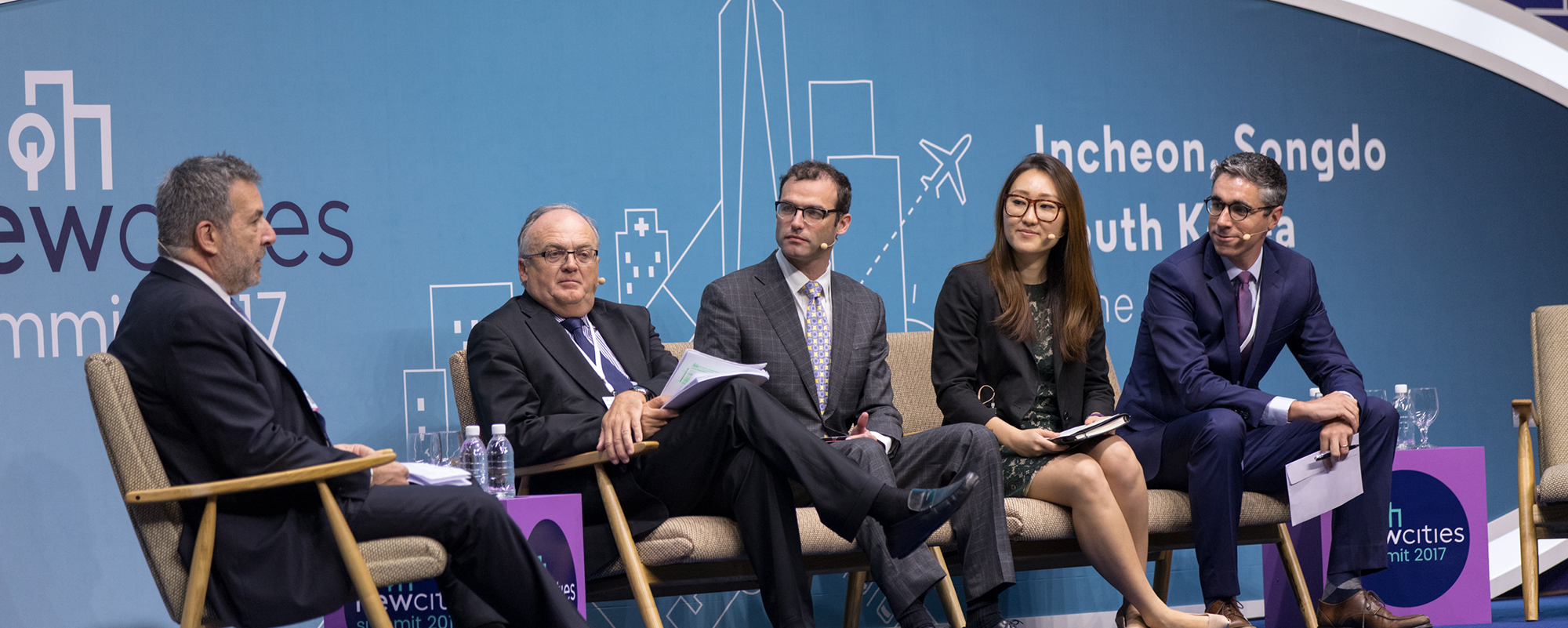
How to Build Clean and Healthy Transport Systems
July 19, 2017 — Blog
This post is part of our Thriving Cities discussion series, following the sixth edition of the NewCities Summit in Incheon Songdo, South Korea in June 2017.
Reducing CO2 emissions in urban transport is key to fighting climate change. Sixty percent of global transport emissions come from cities, while transport accounts for nearly 15% of global greenhouse emissions, a figure set to double by 2050 if nothing is done.
We see the worst cases of congestion and air pollution where mass transit systems are lacking or wholly nonexistent, forcing people to use personal vehicles, or informal, unregulated options over public options. How do we reimagine our transit systems to improve accessibility while reducing CO2 emissions?
Panel moderator John Rossant, Chairman at NewCities, began the discussion noting that the transportation industry is currently undergoing a massive revolution. With the rapid onset of ride-sharing apps, Rossant asked Uber’s Policy Lead for Asia and Head of Policy for Korea, Priscilla Baek, about her company’s role in fighting carbon emissions. Baek said Uber is working towards a more sustainable future by embracing shared mobility – the name of the game when it comes to a climate-friendly future.
“When we think about the future of mobility, it’s all about shared mobility. We have a future where every ride can be a shared ride. Uber is trying to have fewer, fuller, and more fuel-efficient rides,” she said. Baek wants to use Uber’s mass network to connect people spatially, so people can move from personal car ownership to multiple transport modes.
Philippe Yvin is the CEO for Société du Grand Paris, a development project designed to improve life for residents across the Paris metropolitan area. Rossant asked Yvin to address regional inequalities and how best to build a sustainable city. Yvin explained that the new transport system for Paris currently in production will be fully automated and add four new lines, doubling the existing metro. Yvin stressed the importance of public transportation, especially as cities face the effects of global warming and car congestions.
Emmanuel Vivant, CEO of RATP Dev Transdev Asia and Managing Director of Hong Kong Tramways had a similar vision for the future. He said: “The future of mobility will be personalized, autonomous and electrical.” As a public transportation expert, Vivant believes that governments need to prioritize transit when developing city plans.
“One solution is not going to provide everything. Different modes provide different things to different parts of society,” said William Chernicoff, Senior Manager of Global Research & Innovation at the Toyota Mobility Foundation. Chernicoff emphasized the need for multimodal transport adding that he would like to see an integrative and accessible model, especially for lower income and elderly communities.